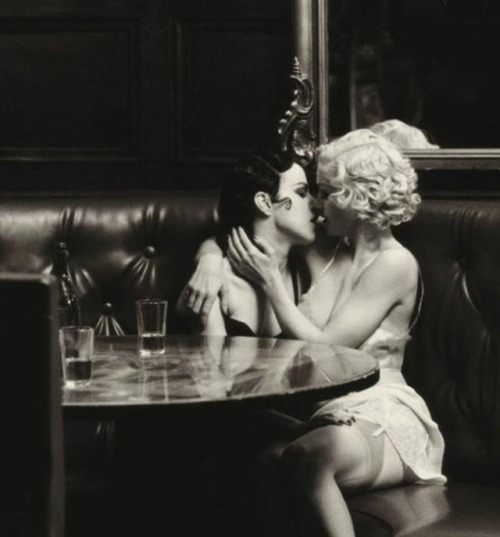#american wizarding
One of the more unusual magics passed down through Native traditions is that of basket weaving - more specifically, the art of weaving magic into a basket as one weaves it by hand. Though many cultures across the world had histories of basketmaking, none in the world, either mundane or magical, could compare with those skills passed down by the tribes of California.
The beauty and utility of the baskets produced by magical and non-magical hands alike were such that the Native peoples had no need to make the change to pottery as their more southern kin did, and European-descended wix often had hard trouble telling where the craftsmanship ended and the magic began. Even unenchanted baskets could be woven tightly enough to hold boiling water, and enchantments have been reported to vary as widely as the baskets they were woven into.
The tradition was nearly lost due to the decimation of both the tribes and the plants with which they made their baskets, thanks to disease and the desecration of the land by Spanish and later American settlers. By the time La Academia Occidental opened its doors, many tribes’ techniques had been lost, in part or in full, and the remainder struggled together to piece together traditions torn apart over the decades by the families of the children they now learned beside.
In the early 1990s, efforts were made by a statewide gathering of people, both Native and otherwise, to revive and restore the ancient practice in full. Through providing a healthy environment for both weaver and plant, as well as increasing the protected territories of both, a resurgence has brought the art back into popular awareness. Now, anyone with money to spend can get themselves a basket enchanted with anything preserving charms to feather-light charms to charms promoting good health, though the secrets behind the magic itself still remains firmly among those willing to dedicate themselves to the art and the cause.
[Image Source: CIBA.org]
Post link
Pari Chander, a post-graduate student at the Randolph-Poythress Institute, took top prize at the Pan-AWC herbology show held this weekend in Twine Meadow. Her rosa agni blends components of the pyrophilic grasses of southeast Asia with the delicate beauty of the Black Beauty rose and its sturdier cousin, the William Booth. “You mustn’t get too close to it,” Chander explained, making sure our photographer maintained a respectful distance. “The rosa agni is quite delicate in this phase. The slightest puff of air will send the ashes all over the place, and then you don’t get nearly as good a flame-blossom later on.”
Therosa agni is an exquisite example of the blending of magical craft with Muggle science, as Chander relied heavily on what she learned while attaining a degree in microbiology at the University of Washington. Chander hopes that the rosa agni might prove a suitable lure for fire-based magical creatures. She has had great success with salamanders and intends to expand her trials to ashwinders during their breeding season this fall.
[Enjoy this story? Consider donating to the author’s Patreon - even $1 will help her with the release of her upcoming novel & her long-term dreams of writing for a living!]
Post link
Circle’s Corner, Washington D.C.
While the Bureau Offices for the Nine Agencies are spread out across the territories of the AWC, the central governance for the Confederation has never been far removed from its muggle counterparts. This is due, in part, to the need for the authorities of Congress to keep careful tabs on the doings of their muggle counterparts, and also for the purely practical purposes of geographic accessibility. In the early days of the AWC the location that came to be known as the District of Columbia was central to the main population located up and down the eastern coast. As the magical population spread westward, its largest and most influential population remained in those eastern states. So it was that a shadow community grew alongside the burgeoning community in the District of Columbia, and in time came to be known as Circle’s Corner.
Hidden by the careful geometric patterns used to design the District, the government of the AWC managed to secret its centers of power throughout the city. Those who know how to navigate the slantwise streets and their arcane patterns will find themselves on hidden roads leading to the great, black marble buildings that house the Congress, the Congressional President’s Manor, the Courts of the High Wizengamot, and a host of smaller buildings that host the offices of various committees and local departmental representatives. The original residential district for most wizards wanting to live in the capital was originally located to the north west of the city, located beside a creek known as Slash Run in the brick-making area. When the muggle community began expanding after their civil war, the wizarding community had to work diligently to disguise its presence and maintain its privacy. The construction of a traffic-circle in 1871 provided them the perfect means of doing so, as circles are the most potent form for warping and confining space.
Circle’s Corner is modernly a small neighborhood located off what is currently known as Dupont Circle in the north-western region of the District of Columbia. For those who know the secrets of stars, wind, and sea, the path to the neighborhood is apparent from the center-most point of the circle. The Corner, as it is colloquially called, is largely constructed in an italianate style, and while many of the original structures were large, private homes, they have largely been broken down into smaller flats and town houses. Circle’s Corner mostly houses those witches and wizards working for the AWC in a federal capacity, but is also a popular destination for those hoping to see the Smithsonian and the great monuments of wizarding America, constructed in the secret spaces of the capital. Despite being the heart of a city, Circle’s Corner is best defined by its broad thoroughfares, tree-lined boulevards, and open parks.
Of course, the wedging of a whole community into what is the next best thing to the Zero-degree of a traffic-circle has some upsetting effects on the landscape around it, and both the TRT and DSO must always be on their guard to ensure the leakage of space doesn’t cause too many traffic problems at the heart of the nation’s capital.
Post link
“I’m sure she’ll come back out, if I just wait long enough,” Miss Paulina said, barely glancing over her shoulder at the Aurors who had come searching. “She said she knew a spell to turn into a mermaid. I told her I thought it would only work in saltwater, but she insisted… She hates Apparating, and she said she’d rather swim to St Louis than ride a broom… And perhaps she was right, for down she went, and the river isn’t very deep here, so I suppose she might be halfway to Missouri by now… But there’s no need for you gentlemen to be concerned. I’m sorry anyone summoned you. Emily can be such a lot of trouble. I did tell her to leave a note. But she’ll be back. If I wait. I’m sure. Wrong? Why would you think anything had gone wrong?”
[Enjoy this story? Consider donating to the author’s Patreon - even $1 will help her with the release of her upcoming novel & her long-term dreams of writing for a living!]
Post link
In an unprecedented first, the Congress of the American Wizarding Confederation unanimously voted today to support the decision of newly appointed President Marla Bolton not to meet with the newly elected President of the United States, Donald Trump. Since the inception of the AWC and its Muggle counterpart the USA, the President of the Wizarding Congress has met with every Muggle President to discuss the true nature of the magical world and reinforce certain pacts of secrecy and mutual cooperation between the two nations. While some of these meetings went more smoothly than others, the tradition has been a constant for over two hundred years.
President Bolton released her decision last week in a press-conference that shook the magical world to its core: “After much deliberation and a careful observation of Muggle President Trump, my offices and I have decided that while the long-standing tradition of cooperation between the magical and mundane worlds is valuable one, we cannot in good conscience expose our world and the people and creatures in it to man such as President Trump. There are serious concerns not only about how Mr. Trump would take the news of a magical world existing alongside his own, but about his discretion in such matters. We will, of course, continue to provide protections for the Muggle leader in the form of highly trained Aurors and members of the DSO, but at this time and for the foreseeable future, we will not reveal ourselves to the current administration or any of its offices.”
Congress immediately entered into deliberations, but after numerous and lengthy meetings of the whole counsel, which included briefings from the Department-Heads of the nine governmental agencies and the Headmasters and Mistresses of the Seven Schools of Sorcery, it was clear that Madam President’s decision would stand. The leaders of our esteemed centers of education were especially vocal in their support of the President’s decision, with Headmistress Mariame Odinson of Black Gate delivering a pointed speech punctuated with ringing blows from her hammer, and Headmistress Theodora Dimon of the Laveau Academy showing how all divinations on the matter implied utter disaster if the President was ignored. The fact that the Laveau Headmistress’s dire proclamations seemed based at least in part on the fact that such an act would upset her, personally, as well as all of her staff and alumni, was not lost on members of the Congress.
“We have not always trusted or liked the leaders of the Muggle world,” said Headmaster Lanskey of the Salem Institute, who closed the comments section from the Seven School’s representatives, “And I am certain they would not always have approved of ours, had they been in a similar position to judge, but until today there has always been a sense that the Magical Congress could trust the motives and discretion of the Muggle President. Sadly that is not the case now. Though I do not agree with many of President Bolton’s views on the matters of Wizarding-Muggle relations, I think she has made a well reasoned decision to keep the Trump Administration in the dark concerning our existence. I can only pray that this particular period in our mutual history will be a short one, and no long lasting precedent will be set.”
-Charles Goodwin, The Boston Bibliomancer, March 1, 2017.
Post link
“The Auror’s Board is still looking for the person or person’s responsible for such an egregious breach of the Statute of Secrecy is a Muggle business in the largely Muggle city of Colorado Springs. Aurors and members of the Department of Secrecy and Obfuscation were alerted by divination cast on Muggle emergency services to the blizzard that had broken out in an otherwise completely mundane eatery.
‘There was no sign of the Trace, so we are fairly certain this was the work of adult mages of unknown identity,” said Field Agent Sandra Harding of the DSO, “The enchantment was, quite honestly, a beautiful piece of work but completely inappropriate for the setting. Muggles were in an absolute panic - 13 emergency memory charms had to be inacted and a further 15 are awaiting court approval for Muggles being held in custody. We are asking anyone for knowledge of these incidents to come forward and tell us what they know. Not only so we can make the perpetrators pay for their actions but also because we got a call from the MRD and they might have a job available in their meteorology and weathery witching department.’”
-Louis Freedman, The South-West Siren, February 15, 2017.
Laurence Xu F/W 2015-16
“It’s a dress for all seasons,” Raquel Pribble said, pointing out the delicate embroidery. “Quite literally. I worked with a Texan thermomancer. The fabric responds to the ambient weather. Bright in sunlight, dimmer on a grey day. Flowers for spring will turn into luscious greens in summer, a burst of fiery leaves in autumn, and gentle snowfall in the winter – provided, of course, that the ongoing rampage of Muggle technology’s effect on the climate doesn’t leave us entirely bereft of such neatly ordered seasons quite soon. I tried to get it to thunderstorm, but the colors kept running. I’ll keep working at it, though. Check back next year.”
–The Elegant Enchantress, Spring 2017 issue
–
[If you enjoyed this story, please consider supporting the author’s Patreon!]
Post link
A clever charm, but a dangerous one.
Though available in certain hidden storefronts in San Francisco and Los Angeles, it is utterly forbidden to the students at La Academia Occidental.
True to its nature, it may only be used once.
And it might kill you, even then.
Are you brave enough? Do you wantbadly enough? Is your devotion to your art that consuming?
What chance would you take, for one perfect song? For one flawless performance? For one shining moment, when the world spins only for you?
Post link
Some girls, Daria Djalelova
Of all the things that changed when I found out I was a witch, summer was perhaps the best of them. Back with the Muggles, I was that weird girl with the stutter – the one who was blamed for setting Mrs. Bloute’s desk on fire after she yelled at me for not keeping up with the reading. Other girls went to each other’s houses, and rode bikes, and pretended to be princesses while I stayed at home, much to the anxious disappointment of my mother and father. They loved me, you see, and there is a terrible curse in loving a child that I didn’t understand then: the desperate need for them to be happy, and the horrible frustration that you can’t make the world see how precious they are. Some parents, like my mother, overcompensated in the hopes they could make you happy, and so I, like many girls, became the ghost at the sleepover: deeply unwelcomed and discussed only in whispers.
Summers were the worst – my mother constantly needling me to go play with the other children, like a bird who believes that the chick who falls often enough will eventually learn to fly. I passed them alone for the most party, accompanied only by my books and my fear of ridicule.
When I found out I was a Witch, that all changed. RPI was so different from the halls of my elementary school, and many of the children who entered through the front doors of that grand manor house were just as odd as I was – a talent for fire was nothing next to the boy who couldn’t keep his face the same shape when he was upset, and a slight stutter meant nothing to a girl who was more used to speaking to birds than people. I found friends there amongst the magical and extraordinary, and when my first summer rolled around I didn’t spend it alone.
We called ourselves a Coven – mostly because the term itself has fallen so far out of favor it had come back around again, at least for us. Technically we were forbidden, outside of school, to practice magic, but we, like so many magical children, learned early on that there were certain sorceries that the Trace couldn’t track, and when we met in the woods on Bethany Johnson’s farm, a place riddled with the magic passed down through her family, we were more or less free to explore our talents.
Bethany Johnson had her familial talent for trees and herbs and always smelled like wildflowers and pine; Margot Lee, of the Virginia Lees, could read the weather in the wind and was the best of us on a broom; Lana Cohen ended up leavings us after fifth year to study Naming Magic at Black Gate, but returned every summer to show us what she learned; and Susan O’Connor was a Muggleborn like me, and taught herself how to turn into a wren one summer, the same summer she taught me how to kiss.
As I understand it the kids nowadays have taken themselves to calling their groups “covens” again, and I can’t help but feel like a trend-setter, even if my friends and I were anything but at RPI. It makes me smile to think of those young mages gathering in the summer, sharing magic and learning about life: outsiders all, blooming on the fringes.
Post link

So - American Wizarding has gotten a lot of feedback in the last couple months both in expectation of and in reaction to JK Rowling’s Fantastic Beasts and Where to Find Them. I won’t lie to you, loyal followers, we have been sort of dreading the release of this movie for a lot of different reasons. While we have never claimed any sort of ownership of Harry Potter or the vast, wonderful, wild world of its Fandom, we hope you can understand that we’ve spent years working together to build what we think is the most accurate and “realistic” interpretation of what the magical population of the United States of America set in the Harry Potter universe would look like – for probably more than a decade before this blog even got off the ground. It’s been a labor of love, and I hope you can understand and forgive how we have grown very attached to these ideas and head-canons. And why, after viewing Fantastic Beasts, we won’t be giving any of them up.
So I guess that’s the first official announcement: American Wizarding will not be altering any of its head-canons to fall in line with Fantastic Beasts. This blog will continue more or less unaffected by JK’s new Canon, and will stand as an alternative for anyone who wants to join us in our sandbox, or use our ideas along with some invented by JK or other fans to create their own marvelous, wonderful worlds of American Wizarding (we certainly hope you will share with us in turn).

The rest of this post will be a response drafted by yours truly (Admin. John – Laveau Academy – Class of 2006, Juris Doctorate of Magical Law, The Randolph-Poythress Institute, Class of 2010) to Fantastic Beasts and Where to Find Them. Please note this review will be about as SPOILERIFFICas you can possibly imagine – hence the jump cut below and the tags. Please also note that this will not be a critical review of the film on the merits of cinematography or from a filmmaker’s perspective – I greatly enjoyed the movie for its own sake, and thought it was a lot of fun and well worth seeing and discussing.
No – this review will be solely a response to JK’s new canons about American Wizarding Society and the new magical elements for the wider world introduced in the film or, more specifically, the many, many reasons we won’t be adopting them and what we disliked, and liked, about the ideas. This will, of course, touch on what we consider some plot holes and problems with storytelling, but as I feel there are a hundred critics better equipped than I (including my own co-mods whose opinions were of course taken into consideration when drafting this) to give you feedback on the film itself, I won’t be doing so.
So! Spoilers beneath this lovely cut.
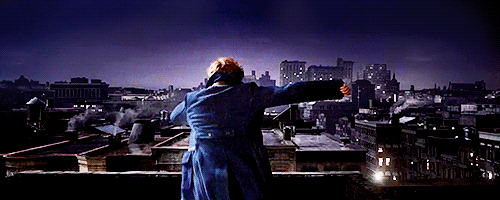
RACE RELATIONS AND A BLACK PRESIDENT: So I feel like I need to address what I see as probably the biggest ethical failure of the film, and that is, very frankly, the complete erasure of race-relations in the United States and, indeed, the entire magical community. JK is on record as saying that in the World of Harry Potter, wizards and witches care more about whether one has magical powers than what color one’s skin is. There has been a huge outcry against this all ready, and I don’t want to bore all my readers with a long diatribe about race relations during the 1920s in America and why this train of thought is not only exasperatingly short sighted of JK, but intensely offensive as well (there are a hundred such articles), so I will keep it to the following points:
1. The Wizarding World is not, in fact, a separate world. Comingling with Muggle society is not only the norm, but a requirement. Mages do not live so aloof from their non-magical counterparts that they can pretend not to know about the injustices being perpetrated in the US in 1926. Muggleborns, at the very least, would have been brought up in a culture where racism was ingrained into the very fabric of their lives. What about those born into slavery with magic? Where they just expected to forget that experience? And if African and Native American mages just sat back while their people and their cultures were decimated by Europeans I will eat my pointy hat. JK’s point of view wants us to believe that magical peoples are justenlightened enough not to care about race but notenlightened enough to stand up to bigotry in the Muggle world. Narratively it is far more likely that the magical population is just as racist as the muggle one, with the added benefit of purism for an added complication.
2. In 1865, the Muggle Congress passed the 13th Amendment, which was intended to end Slavery once and for all. This movie takes place in 1926, 61 years after the passing of the 13th Amendment. There are men and women still alive at this point who were themselves born into bondageand remember it. More importantly, in the Muggle world at the very least, Jim Crow laws are still in place around the country. While often thought of as a purely southern thing, segregation was a national phenomenon engrained into both habit and law. Legal Segregation would continue in some places as late as the 1960s and, in many ways, the fight is still going on today. In 1926 alone:
a. Georgia legally began classifying anyone with even one-quarter black-heritage as black for the purposes of state law and began requiring, as a matter of law, school segregation. Teachers in schools that didn’t segregate would not be paid as a matter of law. Georgia further decided that clergymen were only allowed to perform wedding services for people of their own race.
b. Texas legally segregated its schools.
c. In Corrigan v. Buckley the Supreme Court of the United States of America upheld the legality of “racial covenants,” basically allowing housing discrimination based on race to continue as the norm for another 40 years.

3. Seraphina Picquery is not a celebration of diversity and acceptance in the Wizard Community: she is an erasure of Black America in the 1920s and indeed all race problems in the Harry Potter universe. As the only black character of any consequence in New York City during the height of the Harlem Renaissance, and one for whom character depth is extremely lacking¸ Seraphina’s whole role seems to be one of misdirection. She a Black character devoid of any Black experience, and seems to be used solely so the audience can be mollified that JK and the casting directors made some vague motions to equality without once even trying to lift a wand and actually address the issues. For a series that has dealt so extensively with discrimination to have the perfect time and platform on which to address the issue, the failure of the HP series to do so is more than the normal sort of disappointment: it’s a travesty.
4. I wish I had more to say here, but the complete dearth of any reference to anything outside the monotonous “English but different” vibe of what wizarding culture waspresented means I cannot. New York in the 1920s was a massively diverse place, both racially and culturally. Chinatown, Little Italy, the Harlem Renaissance…all left conspicuously absent.
American Wizarding has, since its very inception, struggled to celebrate the fact that there is no one America. There is not an America that belongs to any one person or type of people, because as trite as it is -American is a melting pot, and for a film that introduced magical creatures from Australia, Asia, Africa and South America to not bother and include a single person or voice from those places or peoples is…a hugely missed opportunity.
MUGGLE RELATIONS IN THE USA

In a truly surprising twist, Muggles and Wizards are not allowed to have anysort of social interaction in the United States in 1920s America. Even friendships are, apparently, verboten.
…Which, of course, raises a lot of questions, the most of important of which is, very simply, what about muggleborns? Are they simply removed from their families? Are the families the one exception? Or do they simply memory charm their families? What about families that move to the United States, or visit the United States, who are already mixed? The Statute of Secrecy is seriously a major ongoing problem in anywork, canonical or otherwise, involving the HP Universe – but this seems like overkill and, for anyone who knows anything about American concepts of individualism, highly counter-intuitive. Leaving aside the strange political implications of the Statute and the fact that its implication coincided with large scale immigration from Europe to the New World (an immigration that probably included witches and wizards seeking to evade the new law) this answer doesn’t seem appropriate.
And, even within JK’s own Canon, wasn’t Ilvermorny founded, at least in part, by a Muggle?
MACUSA – A NEW YORK CAPITAL:

I will admit – I adored the interior of the MACUSA. It is exactly the imagery I have been trying to convey for years and I think it is perfect. What doesn’t fit, however, is the location. For anyone who knows American History (and/or listened to the musical, Hamilton) the placement of the nation’s capital was an extremely contentious and political argument. Some Southerners threatened to quit the union entirely if the capitol was placed in a Northern city, and many of the opposing side felt the same about the South. Control of the capital was seen as a major deal for a lot of reasons. It meant military access and the potential right to control access to and from what they hoped would be the thriving heart of a new nation. It meant an influence on taxes, and it meant prestige. We still aren’t completely sure what deals were brokered to place Washington, D.C. in its current location in what used to be part of Virginia, but the history of that city is fascinating and important to our whole nation.
Simply put, it makes no sense for the capital of the wizarding world to have stayed in New York given the political climate. New York has not been the capitol of the US since July of 1790 and while American Wizarding does believe that the Nine Magical Bureaus are spread across the country, we have always held and will always hold that with a city like Washington D.C. being built for the express purposes of serving as the American Capital, there is no reason for American Wizardry to not have taken advantage of that process to construct its own mirror-capitol…especially given the someone mystical and occult backings that went into much of the city’s design and construction.
US AURORS – LAW AND PUNISHMENT:
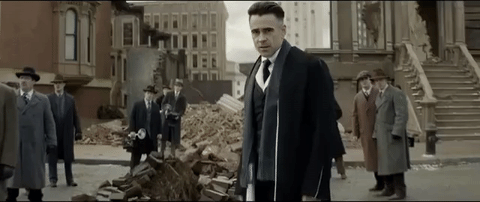
I don’t actually have a lot of say here – save that we have upheld that the death-penalty is still an allowable punishment in much of the AWC, and it seems that this has made it into the movie albeit…without the normal course of American Legal Process. I don’t believe for a moment that on the words of a single man, albeit a man who leads the whole of the Aurors, apparently, that two people could be sentenced to Death. No Judge, No Jury and none of the founding principles of law and justice that were absolutely essential to the Founders. So much so they were written into the Constitution of the United States of America. It is apparently standard practice in JK’s universe, however, to skip all of that based on one man’s authority on a regular basis, even if one of those sentenced is a foreign national of a friendly country whose ambassador is standing right upstairs. I wish I could make a bigger deal about this, but given that JK created the Ministry of Magic, which is one of the most corrupt and tyrannical governmental organizations I have ever seen in a fictional novel, I guess it shouldn’t be as surprising as it is.
ILVERMORNY – AN “AMERICAN” MAGICAL SCHOOL
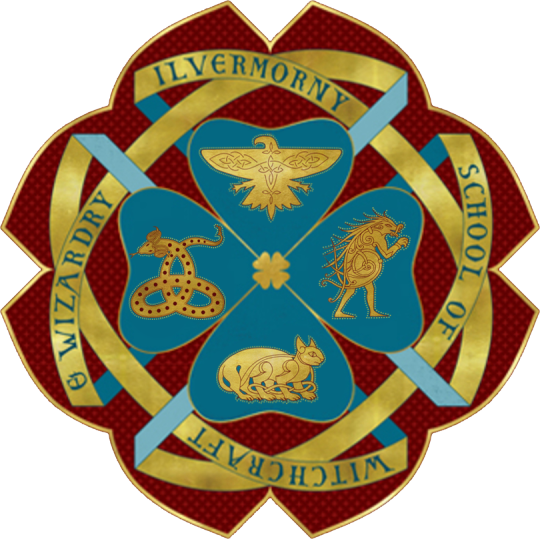
This should come as a surprise to no one, but American Wizarding is not going to be embracing Ilvermorny in any way, shape or form for a number of reasons:
1. JK Rowling has no concept of how large the United States is. Or, more importantly, that it is more than seven times the size of Great Britain. Or, even more importantly, that that immense size also comes with immense regional differences which, until recent times, are been just as strong as national identities. Southern Witches and Wizards would not have sent their children to a Northern School. Californian mages would have felt the same way about a Southern School. The distance and the cultural differences would have been huge and that is without taking into account Americas cultural and ethnic diversity colliding with a long and bloody history of racism. One school is not enough for the number of students. One school is not enough for the regional preferences and cultural differences. And one school does not even begin to sample the diversity and complexity of American culture.
2. Ilvermorny as a “Native American” inspired school is, frankly, offensive for the reasons already mentioned above and many others. While our own ‘Seven Schools of Sorcery’ include classes and, in the case of the Mesa Academy, entire curriculums, we have never shied away from the bloody history and the complexity of relationships between the Tribes and the AWC that made that possible.
3. Ilvermorny is Hogwarts-lite and the ongoing theme of “British but different” becomes more and more taxing the more it keeps coming up.
PROHIBITION AND MAGICAL PEOPLES:

The 1920s in America was the time of Prohibition, which, while only alluded to in the film, was an important part of America’s cultural, legal and political histories. Many don’t understand just how big of a problem alcoholism was in the years proceeding prohibition. In some cities there were as many as one bar for every twelve men, and the almost non-existent regulations on the production of alcohol made it a huge health hazard. Unlike most of Fantastic Beasts, prohibition was not created in a historical vacuum, and people often forget that.
Of course, it also gave us a fantastic peak into the fact that Wizards, like Muggles, have their own secret bars and criminal underworlds: a seedy underbelly upon which, in my opinion, a whole separate story could have been drawn. And that this secret underworld would be a safe place for second-class magical peoples to find their own positions of power? That is truly brilliant. I will admit that here at American Wizarding we had never thought what the role of House Elf might have in America outside of the normal roll of servant…it has always been our position that as rare as House Elves are in Britain, they are even harder to find in America, being such expensive signs of class and wealth. House Elves acting as bar-tenders and public servants? Brilliant and very American.
MAGICAL CREATURES:
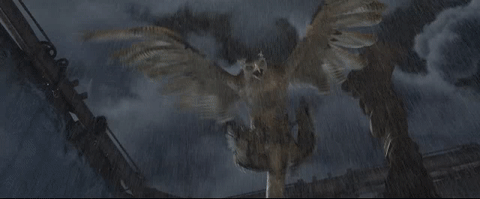
First off…THUNDERBIRD. American Wizarding will happily embrace the creature design offered by the movie for the Thunderbird. The design, like many of the aesthetics in the movie, was beautiful. In fact, all of the creature designs were lovely, and it is good to know, finally, how a Billywig works.
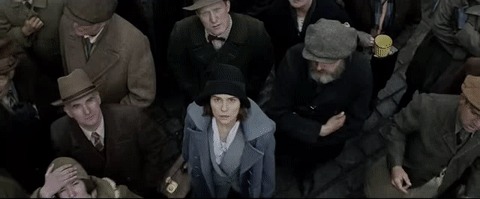
What is troubling is the implication that the American Wizarding community, along with being fine with executing private citizens without benefit of a trial, completely not-racist so long as you have magic, and apparently fine with kidnapping magical children from muggle parents because Muggles and Mages can’t intermingle ever, is pretty much entirely genocidal when it comes to magical creatures.
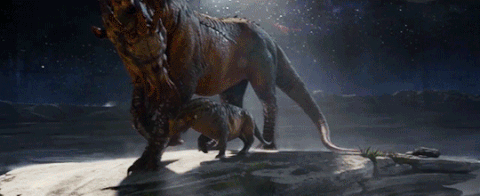
I understand that America does not have the greatest track record when it comes to ecological concerns. Indeed, the extinction and near extinction of many species can be put on the heads of American settlers and frontiersmen. But in the late 1800s and early 1900s a certain fascination with nature had started seeping into the American consciousness, and people were starting to push for national parks and nationally funded wildlife refuges, zoos and conservation efforts. Often heralded as America’s “best idea,” the national park service was well on its way to preserving some of America’s greatest natural treasure by 1926.
There is a logic that magical creatures provide a problem for a magical community trying to keep itself hidden. Dragons, after all, do not like having their range limited because the humans with magic sticks are trying to keep magic a secret from the stickless humans. But the automatic destruction of such creatures seems to be more a narrative tool for showing how dystopian and authoritarian magical society is, rather than a real attempt to reflect a reality about our real history and society.
But seriously. THUNDERBIRD.

[That’s the Sound of AMERICA]
THE PROBLEM OF THE OBSCURUS:

Okay – time to face the Erumpent in the room. The Obscurus, from a purely narrative and world building point of view, makes absolutely no sense.
While American Wizarding, like many fanfiction and head-canon creators, has discussed how magical talent might be suppressed and how that might be unhealthy for the Mage involved, or even how it might be expressed in strange and unsettling ways that are hard to manage, the idea that magical children who aren’t taught to harness their magical talents might become community destroying nightmares that take entire teams of Aurors to control is sort of a HUGE POINT that we can’t help but feel should have come up at some point before now.
It just makes no sense. Purist wizards in the initial Harry Potter series don’t seem to believe that muggle-born children have any place at Hogwarts. Salazar Slytherin built a hidden chamber with a freaking basilisk in it for this very reason. Conservative, purist Wizarding society seems hellbent on separating the magical world for the muggle, and keep any impurities [IE: Muggleborns] on the outskirts.
This is bad enough when seem from a humanitarian standpoint, but when you factor in the idea of an Obscurus-like creature, a creature whose nature is apparently well known to someone who was trained to fight dark magic, makes the whole stance legitimately dangerous in a very real and practical sense. It goes from being simply poorly thought-out to being actively dangerous to everyone involved.
JK has a history of doing this, sadly (see the “Muggles stealing wands to become witches” accusations in DH). The idea of Obscurus seems to be the sort of plot-contrivance used to shoe-horn in an unnecessary storyline (which will be discussed next). I don’t think it is an understatement to say that including the idea “If we don’t get to magical children and teach them how to embrace their powers they might become actively dangerous to muggles and wizards alike and could kill countless people)” into the mix completely changes the whole premise of wizarding culture and politics.
At the very least, I think we should have heard about this by now from someone.
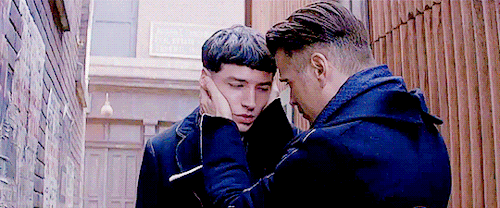
[We’ve had like 15 DADA Professors by now. You think it would have come up]
GRINDELWALD
I’m sorry but it makes absolutely no sense for Grindelwald, a wizard of immense and considerable magical power with an admittedly “fanatical” following to have come to United States himself. Why could Graves not have just been a Grindelwald sympathizer or sycophant of great talent and power? Wouldn’t it have been more meaningful for someone of such authority and respect in the US to have been a collaborator all along? To show that even bastions such as the MACUSA can be infiltrated by fascists and those with evil tendencies? Especially now? Clearly the Obscurus is powerful, but is it so valuable that you would put your whole organization at risk to capture it?

[As a side note: I really miss this actor]
CUSTOMS AND IMMIGRATION: Finally, one niggling point, but I cannot believe for a second that the United States, a nation which pretty much invented immigration control, does not have the magical equivalent of customs with agents hanging out at major points of call to identify wizards and witches coming into the country with contraband. If the nation is so paranoid that it needs to issue every foreign wizard or witch a license for their wand then WHY DON’T THEY ENFORCE THAT?
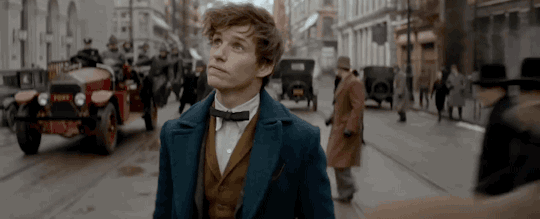
[Pictured Above - Someone Who Clearly Didn’t Get Probity Probed at the Border]
So, ultimately…American Wizarding will continue as it always has. We will not be replacing any of the canon we’ve established here, and while Fantastic Beasts was a fun movie, I wouldn’t consider it a particularly well thought out or researched one.
At the very least it gave us this Niffler.

I will always love this guy

[I didn’t make any of these GIFS. I thank those who did and will source if someone provides me links]
crowd by geertweggen http://ift.tt/2aFTcDf
Notice placed by the Department of Secrecy and Obfuscation in the Sorcery Standard, 13 August 2016:
All Animagi and other form-shifting citizens of the AWC are reminded that their behavior when in animal form is expected to conform to biological norms in all public spaces, and on private property if there is reasonable risk of said behavior being overseen by Muggles. Transgressive behavior includes but is not limited to: human-style communication while in animal form (including writing by means of paw, tail, wingtip, fin, or hoof), the wearing of clothing by animals deemed “wild” and not “domestic”, and the construction of complex tools or other mechanisms. Transgressors may be charged with violation of the 1693 International Statute of Secrecy, the 1799 Act of Compliance, and the 1965 Decree for the Reasonable Expression of Alternate Physical Forms.
Post link
Hello Everyone,
Its been quite a while and on behalf of the Mods of this page we wanted to reach out to everyone who has followed, reblogged, written in, and generally supported this blog even in the years since we’ve provided…well, any updates at all. It had honestly been over a year since I last logged onto this blog to check updates, and I did so today because A) everything going on right now made me desperately miss this head canon and B) I saw a new submission on a project I assumed people had long since lost an interest in…
This blog was and still is very much a project of love and devotion during a time when all three mods found themselves with both the time and the need for this sort of outlet. Some of you may have noted that this blog began to flag a bit during the rise of Donald Trump and the inevitable aftermath of his election. Some of you have also probably noted our blog started going quiet when J.K. Rowling started claiming the canon for the USA. Neither of these reasons were entirely the whole purpose, but they did contribute to our lack of posting.
You see I started this page back when I was in law school, and invited two of my oldest and closest friends, both in life and in fandom, to join me in growing the head canon. Since then, all three of us have been through a lot. I’ve graduated (of course) and gone on to be a full time attorney, which is extremely time consuming. I’ve married my husband/partner, adopted two beautiful cats (re-homed from owners who couldn’t care for them anyone), and spend a lot of my time with them. My other mods have also moved on with their lives as they’ve gotten busier (if you haven’t checked out “From Unseen Fire” by Cass Morris one of my fellow mods’ authorial debut, I highly suggest it - and yes that is my shameless plug on her behalf).
So…with growing responsibilities and outside commitments it became a lot harder to maintain this blog, especially against some of the backlash we were starting to receive from supporters of JK’s canon, the general toxicity all too common in most fandom from every side of the aisle, and frankly a desire to leave the digital space to try and contribute more to the fight out in the real world, where our privilege, backgrounds, training, and education might make a difference.
And now, once again (and perhaps as always) the US is at a cross roads. History is happening outside. A lot of our followers and friends are already on the front line of it, and if you are a member of the protests or working to try and make a positive change out there, we here at American Wizarding salute you and we hope you are keeping safe.
This Blog is Not Dead. I very much want to come back here one day and keep creating. We will still accept submissions and I promise I will try to be better about sharing those. I hope that our commitment to diversity and celebrating the best in America while addressing some of the worst through the lens of fiction has given some of you enjoyment. I hope this has been a safe place for those of you who didn’t always feel like you had one, even in a fiction as comforting as Harry Potter has been for many of us. I hope you are all safe, and well, and happy, and doing whatever part you can, no matter how small you think it is (and I assure you, no part is too small), to make the US into the country we know it can be, with or without magic.
Sincerely,
John, Laveau Academy, Class of 2006, “From Many Streams a River Flows “
car in tree
The legal strictures many magical nations have in place preventing magical tampering with normally Muggle artifacts are practical protections meant to both maintain the secrecy of the magical world while also preventing Muggles from accidentally coming into possession of dangerous magical objects they have no means of controlling. Many a Muggle horror story has roots in non-magical people getting their hands on cursed monkey-paws, teleporting wardrobes, and purses containing everything from vanishing gold to hurricane force winds.
In the AWC, however, these restrictions are notably weaker. In a nation where the magical populace is allowed extensive freedom in their magical practices so long as they do no actual harm and don’t actively endanger the secrecy in which all wizardingkind survives, there is perhaps an unsurprising amount of what many American mages refer to as “tinkering.” And of all the Muggle mechanisms that capture the hearts and imaginations of American Mages, none has made quite the same impact as the automobile.
Mage mechanics, sometimes quaintly referred to as ‘Artificers,’ have shops set up across every region of the AWC. Though their businesses sometimes exist right out in the open, and cater for Muggle as well as magical clientele, many of the most respected craftsmen and enchanters have set up shop well out of the way of easy discovery by mundane eyes. Luckily for their clients, however, most magical cars have no trouble reaching the shop, even when it is hidden in the heart of a swamp or on the bottom of a river, and most repairmen will perform house-calls for significant problems. As the Department of Secrecy and Obfuscations holds every Artificer personally responsible for the artifacts they craft or tamper with, most are only too happy to visit a Wizarding family with a hiccuping station-wagon or a sedan whose spatial warping spells cause it to shrink or grow unpredictably, rather than face stiff fines.
A startling 70% of magical families in the AWC possess an automobile of some sort. Even the staunchest and wealthiest of pureblood families would not be seen without their bewitched limousines, decked out with disillusionment paint jobs, foe-glass windows, portable alchemy labs, and internal plumbing. While the American apparition network is well maintained and preferable for long distance travel, most Wizarding families prefer to blend in to Muggle life for local travel, though, of course, most Mages don’t actually have to worry about parking or gridlock. The most common enchantments on Wizarding vehicles tend to be specifically designed to navigate easily through traffic, find parking, and eschew gasoline. Of course, Wizards must still possess driver’s licenses in order to operate a motor vehicle on Muggle roads and highways, the test for which is significantly more complicated than the mundane equivalent and is performed by the Department of Trade Regulation and Transportation.
Post link
The Assembly by Andrea_Izzotti http://ift.tt/2mQIFJr
Memo to Johanna Margales, Department of Magical Creatures (CMR)
Require your assistance in closing DSO Case 3377B: Harold Carver. Carver has been apprehended and his court date is pending, but in the meantime, we require the assistance of your department to dis-enchant his flock of pelicans. Carver had ensorcelled them to fish on his behalf, but they have now taken to dumping fish on the heads of any human they see and mobbing them with the expectation of reward. This is distressing to the Muggles living in the area and could potentially deplete the natural resources of Atchafalaya Bay. Please advise and dispatch one of your waterfowl-experienced operatives to restore these pelicans to their natural behavior.
–Clarity Williams, Department of Secrecy and Obfuscation
–
Post link
International Relationships Profile: the AWC and Russia (Imperial, IBS, and RMM)
The history of relations between the magical community of Russia and the AWC is a long and turbulent one. As one of the earliest nations to recognize the independence of the USA and AWC from its British forebears, Russia was, for a long period of time, one of the American Wizarding Confederation’s closest allies from its founding until the 20th century. Though largely removed geographically, Russia entertained trade both mundane and sorcerous with the colonies, and when the dust had settled and the AWC established itself as an independent power, embassies were established in both Moscow and the muddy swamp that would grow into the nation’s capitol.
The Civil War marked the first break between Russia’s Muggle aristocracy and its magical population when it came to its sentiments towards the AWC. While the Russian throne and its Muggle governance tacitly supported the Union, the noble rulers of Russia’s wizards and witches were quietly cheering on the South, feeling a strong connection to their Purist peers. Since the enactment of the Statute of Secrecy in Russia, Purism had become the political doctrine dujour of the magical elite. Given its immense size and the troubles of governance, certain noble and well established Pureblood families had been given more or less absolute authority in small regions to oversee the magical population, leading to extensive discrimination and abuses against Muggleborns, Half-Bloods, and non-human magical beings.
These changes were the kindling that would lead to the next great strain in AWC and Russian relations. Even as Muggle stormed the halls of power in 1917, and cast down the Emperor Nicholas II and his family, the muggleborn and half-blooded wizards and witches rose up to tear down the Pureblooded families that had long reigned over them. The conflict took nearly five years to settle, and even as Red Russians fought White Russians in the streets of Moscow, red-robed wizards assaulted the hidden manses and palace of ancient and noble aristocrats. Though better trained and better armed (many poor wizards and witches had been denied wands, while others were not even given more than the most remedial schooling) the Pureblooded families eventually caved to the growing power of the Bolshevik and Soviet sorcerers. By 1925 the Brotherhood of Soviet Sorcerers was the new national power out of Russia, and began making overtures towards spreading its influence in eastern Europe.
The AWC was immediately suspicious of this new world power, and after the defeat of Nazi Germany and Grindelwald (the Nazi’s secret, magical patron) the BSS proved its intentions to the AWC by annexing much of eastern Europe under the cover of the USSR. The BSS officially became the IBS, the International Brotherhood of Sorcery. By this point, AWC officials claim, the revolutionary and almost admirable goals of the original revolution had been forgotten as corruption sank into the leadership of the IBS. Already the magical government of Russia had enforced a strict standardization of magic, a forced compact of government and military service on its magical populace, and, according to rumor, had started an forced-breeding program to promote a larger magical population. The whispers of dark experiments being done on political dissidents in sorcerous, Siberian gulags put the international community on edge.
The Cold War between the AWC and IBS was just as frigid and vicious as the conflict between the USA and USSR. Undercover operations put into place by a joint taskforce of the DSO, Auror’s Board, and Department of National Defense ran numerous secret missions trying to destabilize the IBS internally. Special agents (including the Allegiance Academy’s current headmaster, Jonas Hill) rallied dissidents within the nation, working with parties many within the AWC found…distasteful: criminal syndicates, rebel werewolf packs, hag covens, vampire hives, and those few remaining Pureblood families who resented the communist philosophies of the new ruling class. Meanwhile, Russian spies worked, with minimal success, to use racial tensions in the AWC to weaken the nation’s resolve, and attempted, with slightly more success, to influence members of the government with promises of wealth and power.
As between the USA and USSR, there were few direct conflicts between AWC forces and the IBS, but a number of close calls. In 1976, AWC Aurors and IBS Boyekolds (battle sorcerers) came close to open conflict in Transylvania, when the AWC supported the magical nation’s bid for independence from the IBS and the Soviet Sorcerers sent forces to prevent just such an occurrence. Other times nation-states were used as pawns in their struggle for dominance. Magical conflicts in Korea, China, the Middle East, and Poland were supported by both sides, leading to long lasting international conflicts.
Eventually a combination of internal dissension, external pressure, and the crumbling of the USSR’s supportive government infrastructure led to the dissolution of the IBS. The final IBS Premier, Antonia Utkin, headed the arrangements for free elections, and in 1993 she handed off the reigns of power to the first Russian Minister of Magic, Aleksie Balandin.
Relations between The Russian Ministry of Magic (RMM) and the AWC have been politely formal since the fall of the IBS. Despite attempts at democratization, however, the RMM is not without its problems. Not only have some of those corrupt leaders from the IBS managed to hold onto a great deal of wealth and influence within society, some of the AWC’s best allies in its attempts to destabilize the IBC have become their worst enemies since its collapse. Organized criminal syndicates, rebel werewolf packs, vampire hives, and, of course, the old and ever puissant Pureblood lineages have frightening amounts of control in certain parts of the country, and would like nothing more than to see the destruction of their erstwhile allies.
Post link
American witches and wizards host a breathtaking range of pets and familiars, perhaps more than any other magical nation in the world – because, of course, they have come from all over the world, and brought their creature companions with them.
Not owls alone carry messages, but ravens, elisi in all colors, resplendent quetzels, and even the odd well-trained bat. English Crups have been crossbred with gentler breeds, making for a variety of part-magical canines. Common garden snakes might curl around a young witch’s shoulders, and so might moon-serpents. Aquariums in magical homes boast ghost guppies and Chinese wishing fish alongside common angelfish and bright betas. And of course, Americans love their pegasi, breeding them in great numbers and taking them to the skies in their country’s still-broad-spanning wildernesses, free from the peering eyes of Muggles.
But the favorite, coast-to-coast, remains felis catus.
And perhaps that is no surprise. Since the Egyptians, humans have recognized something beyond the mundane reflected in the cat’s bright eyes, a connection to something other, something beyond.
Small wonder that magical practitioners throughout history have connected them with magic.
Small wonder that thousands of American witches and wizards continue to do so today.
–
[Mod Note: Hi! So, this week, I found out that my sweet baby Ptolemy (pictured above) needs between $400 and $2000 worth of tests and procedures to address a chronic health problem. (I refer to him, affectionately, as Firebutt, and that’s probably all the detail anyone really wants me to share about that). If you’ve been thinking about supporting my Patreon but haven’t got around to subscribing yet, this would be an awesome time. Not only will you get new content from me every week, but you’ll also be helping this cutie’s gastrointestinal health and happiness. ;)
[And think about it – all that stuff we begged and pleaded JK Rowling to release over the years, the notebook scribbles and family trees and timelines and such – I’m going to be giving that up-front and ongoing to my patrons. I’m totally committed to keeping this up for the life of the series, and I would love to have y’all with me right from the start.
[This blog has several thousand followers, which is amazing. If even a fraction of you subscribed at the $1 level – for the grand total of two or three lattes a year – it would relieve so much of my anxiety & burden, and it would free me up to create more content here for y’all. (All those unanswered asks? I’d really love to get to them!)
[I’m currently running a promo contest to get to my next goal, and if we make it there by May 17th, I’ll be giving away a $25 Amazon Gift Card to one of my patrons!
[So, friends, if you have enjoyed American Wizarding, give the Patreon a look, pledge if you can, and reblog to spread the word. Ptolemy will be very grateful. (And lookit that face!)]
Post link
They would never have gotten involved, of course.
Astra and Stella were just girls, growing up at the Institute – no need to ask which, for these were Virginia-born Blacks, for all they had grown up in Texas, great-grandchildren of a Georgian-era runaway. Their branch of the family had arrived on the westward side of the Atlantic with none of the pecuniary advantages some of their cousins enjoyed, but they had made good.
Black roses are hardy, and tough to root out.
Their mother had been a queen in crinolines, the beauty of her age, and she taught them pride when she gave them her name. Her husband was wealthy, a dragon blood baron, but there was little virtue in his name, plucked from nowhere, and it was already borne by five sons. On this point, Alya had been implacable: the girls were hers.
And she taught them pride.
Astra and Stella had the second-best room in the Upper House of the Institute the year their mother died, with the war already longer in the tooth than its Muggle counterpart. Wizards are stubborn, and perhaps American wizards more than most. Continuing to fight seemed an easier matter than hammering out peace. The war never touched RPI directly, but it brushed by, close enough to smell.
From their window, they watched. From their window, they listened. From their window, they gathered information.
Who would suspect the Black twins of passing information across borders? Who would suspect such sweet faces of treachery? Such delicate hands of penning such damning letters?
It was even easier at home, where their father never paid them much mind, and even less now that the South-Central region had divided amongst itself. Never enough to notice the owls that stopped by their bedroom before his study. Never enough to notice when they slipped out at night.
But not to get involved, heavens no. Not like cousin Auriga, fighting for the Southern Alliance of American Sorcery. And they would never do anything so common as sell their information. How undignified. But they saw what they saw, heard what they heard, and knew what they knew – and sometimes, when the circumstances seemed right, they would pass that knowledge on to those who were involved in the unpleasantness.
Let us not mistake their contributions for altruism. If Astra and Stella had any particular moral motivations, the historical record has not made note of it.
What history does know is that, between 1869 and 1875, two brothers were apprehended by the North-Eastern Aurors. One was killed, taken in an ambush in Tennessee. One found himself heavily indebted to North-Western merchants and in imminent need of emigration to Mexico. One was suspected, of all things, of spying, and summarily executed.
Proud, the girls were, and patient.
In 1875, when hostilities ended, the newly-reconstituted Aurors’ Board in Quantico received a hoard of information from an anonymous source, all of it well-documented and fit to condemn a Texas dragon blood baron for war crimes. He fled, rather than face trial, and with no other relatives left alive and untainted, the AWC saw fit to bestow his estate on his two daughters, though they did not even bear his name. His wealth, his goods, his pegasi, the mansion on the Gulf Coast, even the little property in Virginia no one knew about, except the mistress he had kept there. Every scrap of it went to Astra and Stella, as good as orphaned, alone in the world.
Pride, their mother had taught them, and how to make good.
—
[Enjoy this? Tip the author! patreon.com/CassRMorris]
Post link
The first time a Muggle boy shouted at Amarice Kelley on the street, she was so startled, she hardly knew how to respond.
Pure of blood and strong of will, Amarice had grown up ensconced in an all-wizarding community. There and at school, she knew everyone by name, knew what to expect from them. It had been lovely, safe, but so small. She loved the big Muggle city she now worked in, loved the noise and the bustle and the smells, loved the ingenuity of the Muggles she moved among, their resourcefulness and cleverness and humor. But this – this, she had not expected, such open vulgarity, and from a stranger.
The second time, she delivered a hexing so thorough it sent the portly electrician to St. Dymphna’s, and only a friendly cousin working at the DSO spared Amarice an uncomfortable inquiry and embarrassing mention in the Sorcery Standard.
Thereafter, Amarice learned to temper her vengeance.
A memory charm on the man who stroked her thigh on the subway made him miss his stop and an important appointment. A drop of tentacula essence in stale beer retaliated for a forced kiss at a party. A rearrangement charm cost the banker who propositioned her half a day’s work in sorting out his files. Little things, hard to trace, nothing that would draw attention from the authorities. They satisfied the momentary urge to bite back, Amarice found, but did little to quell the fury in her heart.
What baffled her even more was that the Muggle women hardly ever fought back, hardly even seemed to acknowledge the slights.
When Amarice, home on holiday, asked her parents about this strange quirk of Muggle culture, her father had huffed superciliously. “Of course they don’t know better, these Muggles,” he said. “Our boys grow up seeing what witches are capable of. That breeds respect. Muggle men might think so little of Muggle women, but wizards don’t think that way about witches.”
Her mother had a different response. She sighed, hardly looking up from her case files, and said, “Of course we’re not immune, sweetheart. It’s just difficult to express it so openly when a witch can fight back the way… well, the way you did. But it’s there. Of course, it’s there.”
And Amarice thought of the boy who’d refused to speak to her for the rest of the year when she’d turned him down as a date for the spring dance. She thought of the teacher who’d suggested that she’d overloaded her schedule in her EWE years, yet hadn’t given the same council to the male classmate with the same goal and lower grades. She thought of the mothers of several of her friends, who stayed home and kept house while their husbands jockeyed for position in the bureaucratic hierarchy.
Amarice wondered how she’d missed it until it had been shouted at her.
[Mod Note: This post is a wizarding-world response to the #YesAllWomen phenomenon that has dominated Twitter trending for several days.]
[Bringing this back for International Anti-Street Harassment Week
[Want more content like this? Support mod!Cass’s Patreon. If one-third of this blog’s followers backed at the $1 level, she could make writing her full time job - which means more of the good stuff for you on *top* of the usual patron rewards!
[patreon.com/CassRMorris]
Post link
Cherry blossom viewing at night.
The warmth came too early that year, far too early. Tank tops and sundresses might be an enjoyable surprise in mid-February, but they are out of the rhythm of things. Denizens of the mid-Atlantic know better than to pack away the closed-toed shoes and wool coats before April, no matter how many pops of color are starting to find their way into the natural world.
Many plants are hardy things. A daffodil will wilt and pop back up a dozen times. A crocus hardly minds a little coating of ice. Bright-burning forsythia defies a freeze.
But other blossoms are more delicate.
So they made a project of it, the visiting students from Mahoutokoro and the Herbology-specializing upper house students from RPI.
Warming charms, long-practiced in the greenhouses and fields surrounding the Randolph-Poythress Institute – but miniaturized, a specialty of many Mahoutokoro students. A charm nestled inside each foolish bud, staving off the sudden freeze that followed the suspicious false spring. A charm that could hold for weeks, until warmer weather arrived to stay.
It took most of a week and an extended field trip, but working in pairs (under the watchful eyes of the DSO), a herd of fifteen-to-seventeen year olds saved the cherry blossoms of Washington, DC, preserving their beauty from getting nipped in the bud.
[If you’re enjoying these stories, consider donating to mod!Cass’s Patreon: patreon.com/CassRMorris]
Post link
Making fire out of the cold is a peculiar talent, but when the blizzard hit Black Pains, Sophie Nellsdottir was glad she had learned.
Even the best of heating and insulation charms, applied to walls and roofs with thorough regularity, can do little when it’s five below even before the winds start howling, when the snowdrifts pile up above your second story. Magic can only fight nature so far.
But ice burns, too, in its way. And a witch who was clever enough, who saw the world in the right ways, who had a bit of a penchant for turning things inside-out, might earn to make that work to her advantage.
She melted a trail from door to door, collecting every family in the town, one by one. The paths were covered up again nearly as soon as she had forged them, but it was enough. Enough to get everyone to the town hall, with blankets and boots, where their combined magics could keep a blue-flamed blaze stoked for the three days it took the sun to reappear.
[X]
[Enjoyed this? Consider pledging to the author’s Patreonas she launches her debut novel!]
Post link
AWC Citizens are reminded that using magic to interfere with Muggle-owned technological devices is not only a violation of the International Statute of Secrecy but also a transgression of Article 7B of the Muggle Protection Act. Furthermore, the Department of Trade Regulation and Transportation requested we specify that that however amusing we might find Muggle pre-occupation with the “new” development of self-driving cars, the TRT does not recognize it as a cause for mirth, and anyone caught playing this sort of entrapment prank on unsuspecting Muggles will be getting a visit from TST officers and their local Wizarding Congressional Representative, thank you very much.
–Government-sponsored notice in The Sorcery Standard, 20 March 2017
[If you enjoyed this story, please consider supporting the author’s Patreon.
[And this one? Is actually sort of true! Read about it here.]
Post link
Like many modern “fads” and “trends,” most forms of body modification actually have long and cultured histories that reach around the world. The art of tattooing, for example, has been a common cultural staple in many societies since neolithic times. It shouldn’t come as a surprise, of course, that the practices of Muggles and their magical neighbors would not be so different, even if Mages around the world were able to create effects their mundane peers couldn’t imagine.
In the modern AWC, many of these ancient arts have met and merged in the great cultural crossroads that is North America. The wayfaring inks of the Philippians met the battle wode of the ancient Celts, breeding new and fascinating enchantments the likes of which their creators had not imagined. Recent advancements in subdermal implants have been adapted into ancient sorceries that believed one’s shape inherently affected the expression of one’s magic, and numerous young Mages have found that whether it is psychological or thaumaturgical in nature, having the shape of a devil has cast a fiendish flavor to their magic.
Other transformations are more practical, but just as startling. Transformations to give a Mage the sight of a cat, or piercings that can sense the flows of back-ground magic have become very popular amongst young Mages across the AWC. Hair dyes that emote color or allow one to control the shape of their locks and tresses have flown off the shelves of magical shops, even as recipes for home brews circulate through classes and schools.
A warning must be given to any Mage, young or old, however, who pursues these sorts of transformation. While most of these effects can be achieved without surgical magics, the effects cannot always be removed without more serious and invasive procedures, and a great many of them also count as breaches of the Statute of Secrecy if they come to the attention of Muggles or their authorities. Having the night vision of a cat might be extremely useful, but when one’s eyes glow in the dark it can be quite distressing to our non-magical neighbors, and most Muggles do not see steel barbs erupt along their jaws in the presence of dangerous spirits and hostile ghosts. Even now the Department of Secrecy and Obfuscation is reviewing guidelines for which of these procedures should be outlawed and which may be allowed under special license.
Post link
From the Sorcery Standard, page A4 - 1 July 2016
Is a New Education Standardization Act on the Horizon?
After nearly a decade of internal debate among the Council of the Seven Schools, it seems that a new Educational Standardization Act may be headed to the American Wizarding Congress for consideration.
The Council, composed of faculty representatives, board members, and distinguished alumni from all Seven Schools, is set to propose the addition of scientific principles to the Fundamentals curriculum, alongside the reading, writing, and mathematic skills currently mandated. AWC representatives Corona Black (South East district 7) and Maximilian Vasquez (North East district 4, and brother to the Head of Fundamentals at the Salem Institute) have pledged to sponsor the Act to the Congress.
“It’s long past time,” said Vasquez. “Potions, astronomy, herbology – these disciplines already call upon hard, definable science, at their hearts. But most of our children are sadly lacking in basic knowledge of biology, chemistry, and physics which could only assist them in the production of competent magic. Too, understanding the scientific method, how to test a hypothesis, how to design a controlled experiment, and so on, will impart valuable critical reasoning skills.”
Kenneth Abermacky, Head of the Potions Department at RPI, put it more simply: “If they can tell their aconite from their elbow, they can damn well learn the periodic table.”
The proposal is backed by significant members of the Department of Magical Research and Development. Dr. Naomi Agbayani, who earned an M.D. from Stanford University after her early education at LAO and prior to advanced Healing work at St. Dymphna’s Hospital, has long championed the intertwining of science and magic. “There is no reason for the two to be as disparate as they are. Once, in the days of the alchemists and sorcerers, they were indistinguishable. Now, we owe it to the healing arts, as well as those of communication and, yes, even entertainment, to give our students a thorough grounding in those components of our physical reality which affect both scientific study and magical practice.”
Though the proposal has gained popularity in recent years, it is not without its detractors. “Muggle science is an unnecessary crutch for the adept witch or wizard,” said Hubert Gworthem, an AWC representative from the Lake Central Region. “We will be weakening future generations’ understanding of magical principles if we see this measure through.” Gworthem is expected to lead opposition to this Educational Standardization Act in the AWC. (Editor’s Note: When asked for commentary on Gworthem’s position, Representative Black did offer this paper a statement, but the editorial board deemed it unsuitable for publication).
Previous ESAs formally recognized Mesa Academy, the Laveau Academy, and The Allegiance Academy as fully accredited institutions of learning (1901), made education at one of the officially recognized Seven Schools mandatory for all AWC children ages 11-17 (1901; a 1903 addendum granted exemptions for Native students who wished to be educated within their own communities), set standards for secondary schooling and vocational training (1935), and moved from disparate testing systems to the IWE-AWE-EWE system currently used in all Seven Schools (1965).
Evaluation and possible restructuring of the IWE-AWE-EWE system has been in consideration for some time, and is not likely to reach AWC consideration anytime soon.
–Report by Gervase Wynne
[X]
–
[If you enjoyed this story, please consider supporting the author’s Patreon!]
Post link
Joseph Ducreux’s 18thcentury “Le Discret,” the subject cautions the viewer to be discreet. Or has the subject – Ducreux himself – transgressed and wants you to keep his secret?
Charles Attenborgh, 1770-1866
One of the AWC’s unsung heroes, Charles Attenborgh was one of the founding members of the Association of Magical Librarians and an early proponent of the public libraries that are now enjoyed by the magical public of all Seven Districts. Attenborgh was himself a Muggleborn Mage of no small distinction - having graduated from the Salem Institute at the age of 17, Attenborgh attended the then youthful Muggle institute of the University of Pennsylvania where he grew enamored of the school’s founder, the Muggle polymath Benjamin Franklin.
It is believed by magical historians that Attenborgh was deeply affected by Franklin’s death the year following his admission into the University, and took to his philosophies of public service with gusto. Upon graduation, Attenborgh returned to the Salem Institute where he established and organized the then ramshackle excuse for a school library - utilizing wand, index card, and occasionally whip, he created a cataloging system that took into account the many complexities and unique concerns with running a magical library, and became the norm for magical librarians across the entirety of the AWC.
In 1842, Attenborgh successfully garnered enough support to petition the Counsel of Northeastern States to open a public-lending library in Philadelphia. The Library was a huge hit with the public, and Attenborgh found a strong advocate in James Smithsonian, the founder of the Smithsonian Institute for Magical Knowledge (SIMK). A half-blood himself who wanted to leave his philanthropic touch on the AWC, Smithsonian used his wealth and influence in Congress to make the libraries a permanent sub-department of the SIMK, complete with federal funding.
Now there are 14 public libraries spread across the AWC, not counting the 7 libraries held by each school and the one forbidden archive held directly by the SIMK. Attenborgh passed away in 1866, where he died heroically defending a library located in Atlanta, Georgia, which had been caught in the cross fire of the opposing forces. The library survived, but Attenborgh did not. His statute guards the Atlanta branch to this day, and his portrait hangs in the library of the Salem Institute, where it is famed for assuming what was considered Attenborgh’s favorite pose in life.
Post link
The first St. Patrick’s Days celebrations in the United States belonged to the Muggles.
Oh, there were Irish witches and wizards in America by that point, but when the Charitable Irish Society of Boston met for a day of worship and a hearty sit-down dinner on March 17th 1737, there were only Muggles among their number. Rumor has it a wizard in the Continental Army may have put it in General Washington’s ear, in 1780, to give the army March 17th as a holiday, but alas, the historical record fails to confirm this legend.
We certainly have wizards to thank for much of the holiday as it has become, however.
After World War II, with magical transportation between North America and the European continent easier than ever, many of the Irish whose families had emigrated in the 19th century took the opportunity to visit the homeland. And some did not return empty-handed. The New World suddenly found itself hosting not just Irish magic, but Irish magical creatures, to say nothing of enchanted tapestries, singing rocks. And, feeling more at home, the knots of Irish witches and wizards across the AWC began to act a bit more at home as well.
Most of those hauling leprechauns and Gaelic pictsies into Boston, New Hallow, Savannah, and Stoppelwald were sensible enough to mind the strictures of the International Statute of Secrecy… most of the time.
Holidays have always, after all, been a time when wizarding folk tend to wink at the law.
At a total loss to stop the annual enthusiastic outbreak of green and orange showers of sparks, and bar tabs paid with fool’s gold, the American Magical Congress determined to camouflage it instead.
Who now would notice a Metamorphmagi changing her hair color in the midst of a sea of green and orange wigs? When all of New York City is enjoying Irish whiskey, what matter the strange noises and flashes of light bursting out of the Sixth Borough? And when every Muggle in the streets is stumbling anyway, what matter if the charms and cantrips of leprechauns tangle their feet?
[Enjoy this story? Consider donating to the author’s Patreon - even $1 will help her with the release of her upcoming novel & her long-term dreams of writing for a living!]
Post link
[From the CMR archived files, 1973]
… The Dakotan Drop-Ear was easily subdued and evinced neither fire-breathing nor venomous properties, further confirming that it cannot truly be classified as a proper dragon. What, then? Did some of the larger Asian or European species migrate here long enough ago to take an entirely different evolutionary path? Or is this perhaps the result of dragons inter-breeding with some hitherto unknown megafauna during the last Ice Age? More study is clearly necessary, and it would be a simple enough thing to disguise the investigation as an archaeological or paleontological dig…
[From the DSO archived files, 1973]
…We were able to convince the local Muggles that they had not seen a dragon – that, of course, would be a ridiculous fiction. Several, however, maintained firmly that they had witnessed a UFO preparing an attack on the Badlands (why they imagine an invasive alien species would attack there instead of a populated area, I cannot begin to fathom). Others asserted that it was a dinosaur, either rediscovered as a remnant species or unearthed from the tar pits and reanimated with electricity and gears. In true American fashion, no sooner did this rumor spread than one enterprising young man set up a roadside stand selling tickets to see the extinct curiosity, much to the irritation of his neighbors, who have now had to contend with tourists tramping through their fields…
[Enjoy this story? Consider donating to the author’s Patreon - even $1 will help her with the release of her upcoming novel & her long-term dreams of writing for a living!]
Post link
Even in the Sixth Borough, people stared.
“It’s not that I mind them being that way,” the barkeep would mutter, “but d’they have to be so muchthat way, all in front of everyone? Even a… a traditional couple would blush, to carry on like that.”
They all thought it was Fran, leading Lilian astray, of course. What could you expect from a vaudeville illusionist, who turned magic to the most frivolous and ostentatious purposes? Lilian, though, she was a good girl; had worked in her mother’s apothecary shop since she’d been old enough to stand, carefully measuring out mandrake roots, powdered moonstone, and squill bulbs. It was only when she started frequenting that theatre – not the proper one, the new, trashy one, that Merlin’s House of Mysteries (and what a tacky name, only a Muggleborn could come up with that) – that she bobbed her hair, shortened her skirts, and started whistling as she walked down the street.
Would they laugh, or be scandalized, if they knew? That it was Lilian’s soft hands, Lilian’s sweet lips that had drawn Fran down the primrose path. Those sweet eyes, gazing up during the illusions, that had captivated Fran even through the glimmer and haze. Hers, the first move – a rose which unfolded into a love note, such a pretty charm.
And after that… if they couldn’t feel free to be themselves in a gin joint behind a theatre in 1928, when and where on earth could they?
–
[If you enjoyed this story, please consider supporting the author’s Patreon!]
Post link

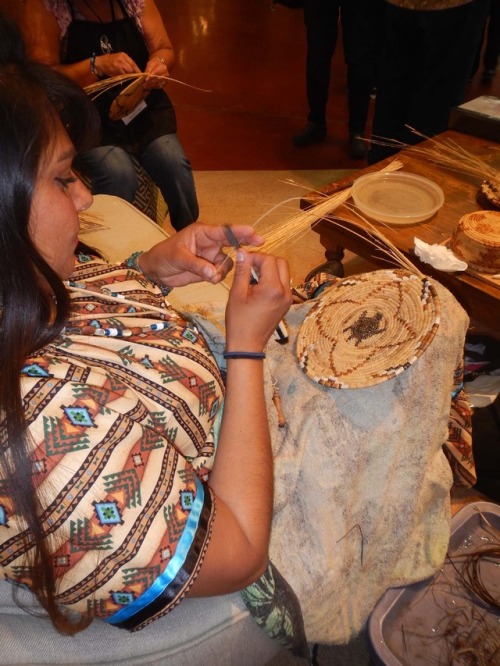
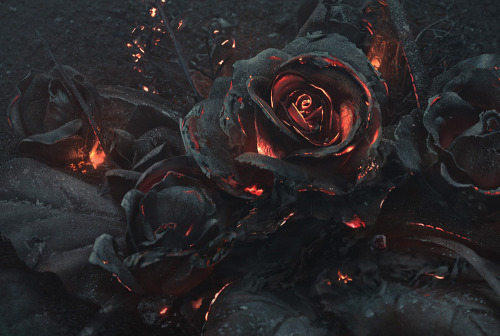
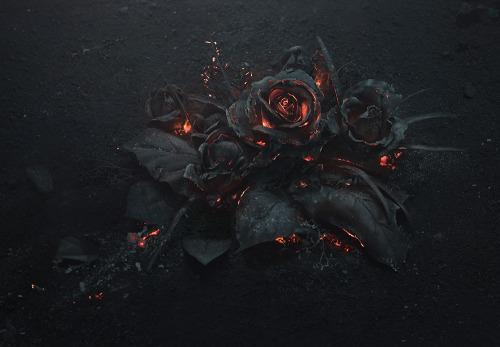

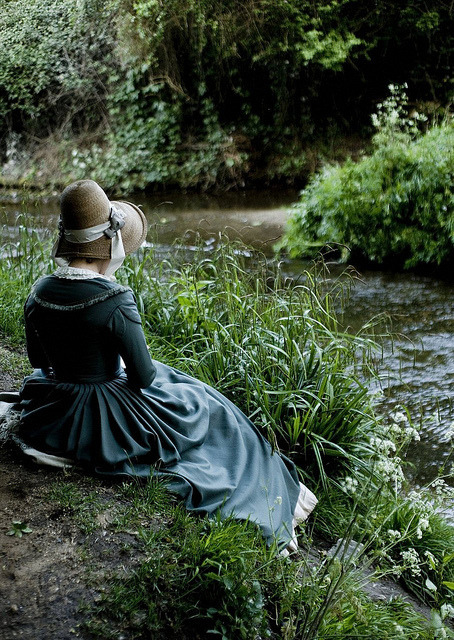



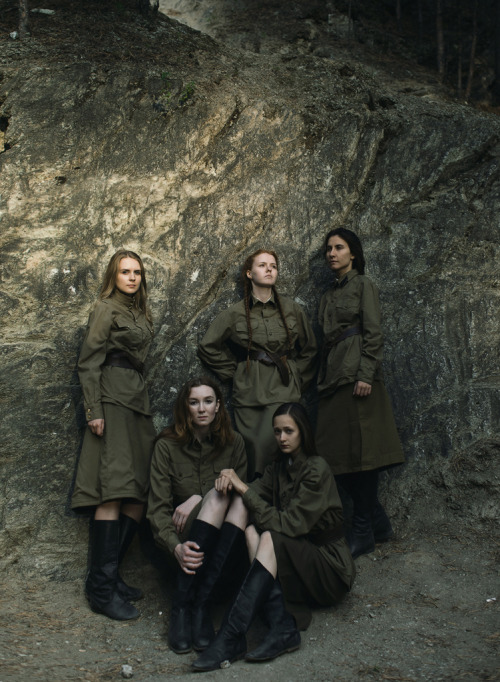
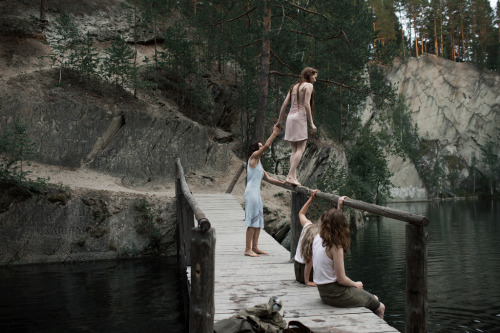
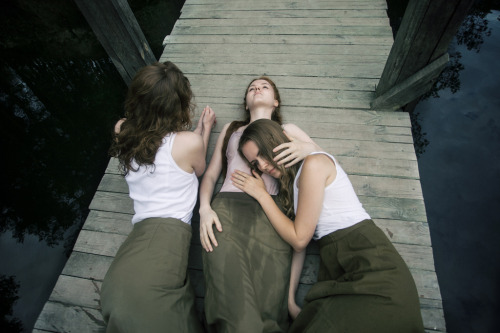
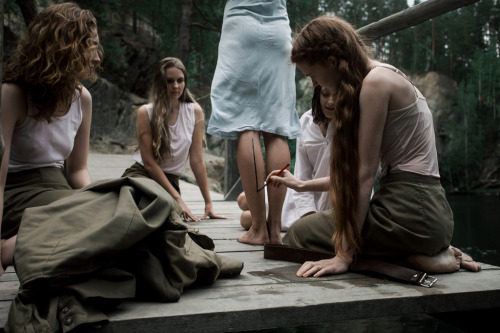
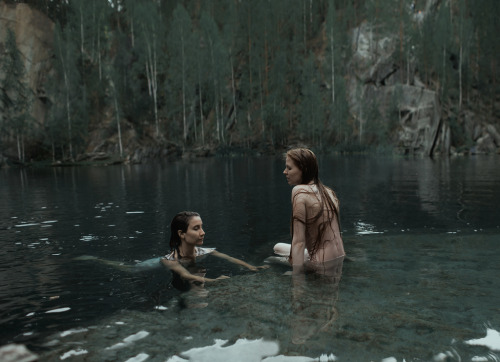
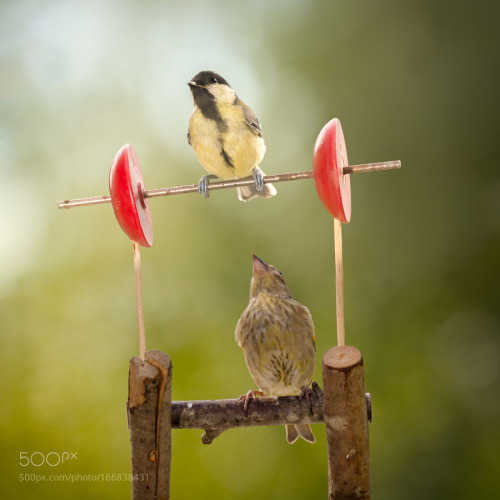
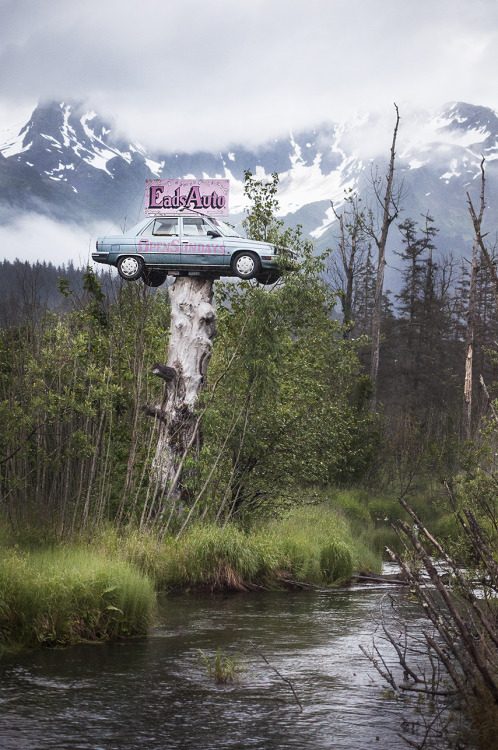
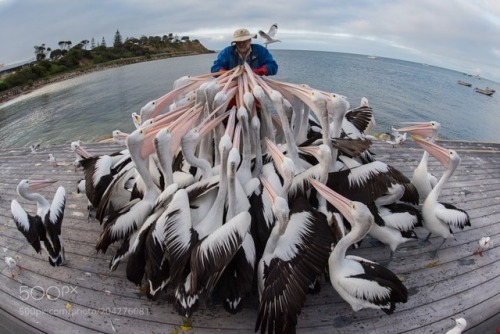
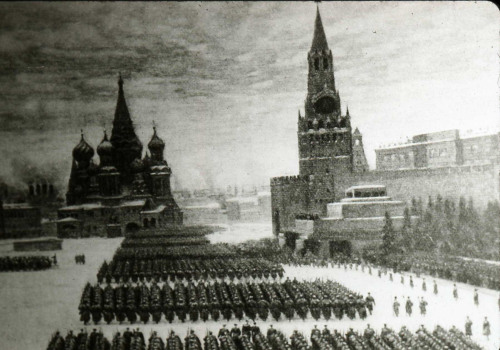

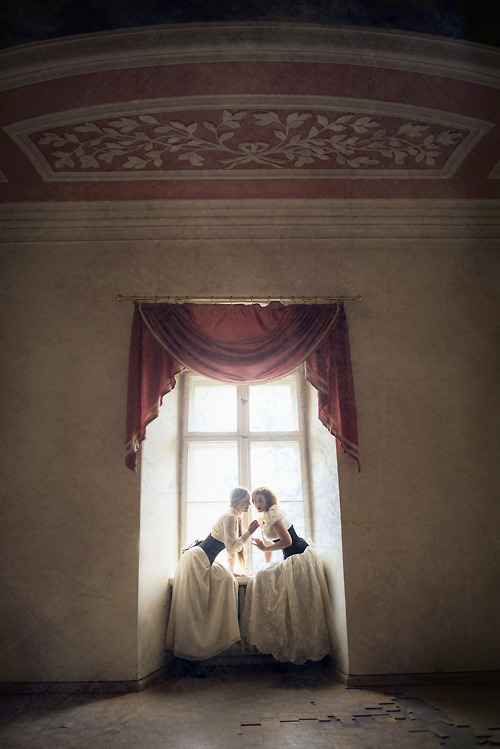
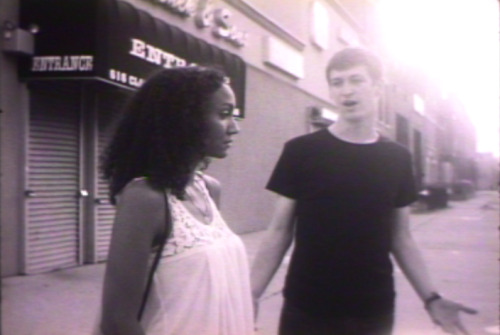
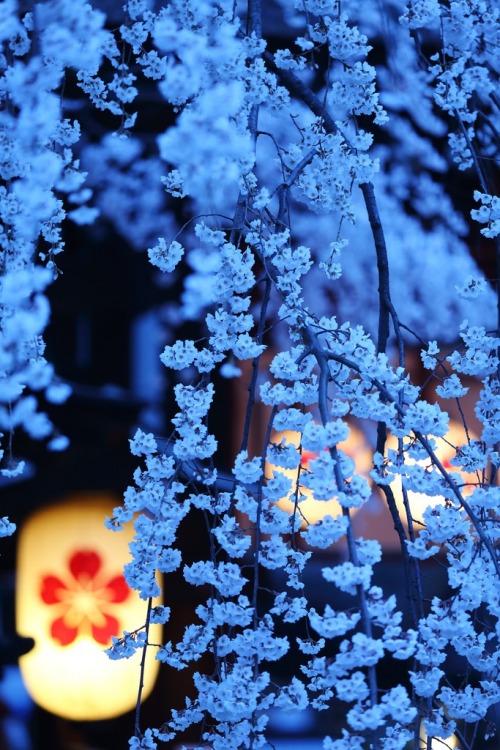

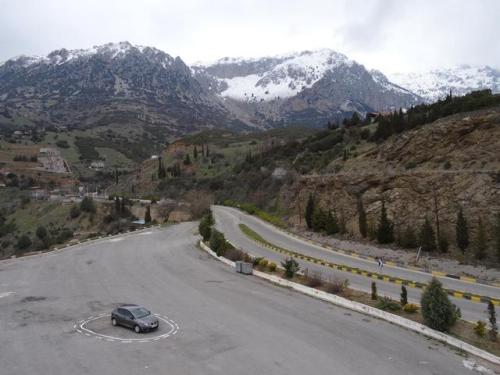
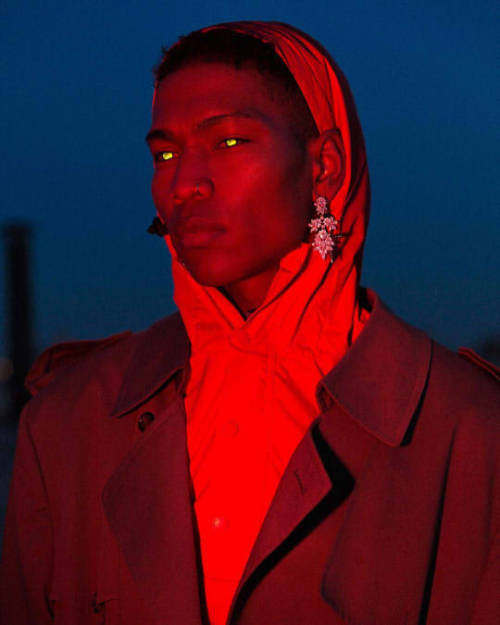
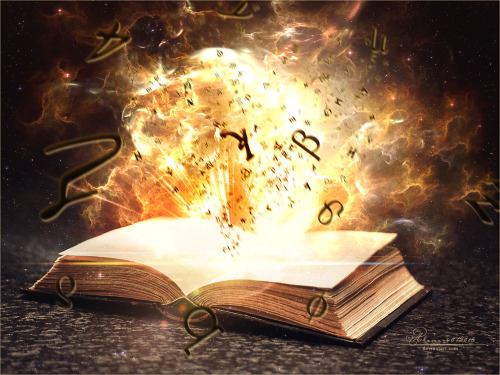
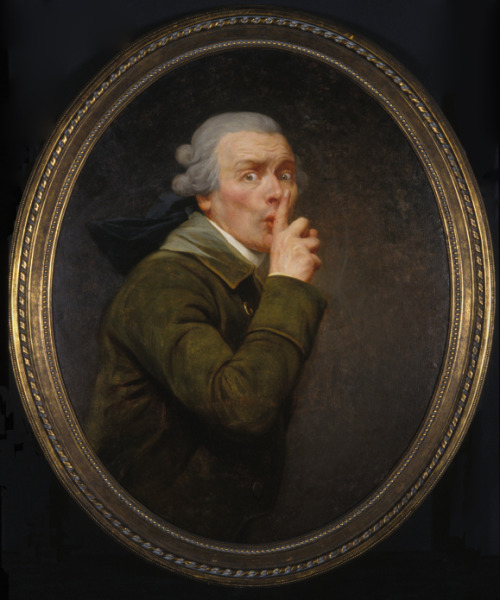


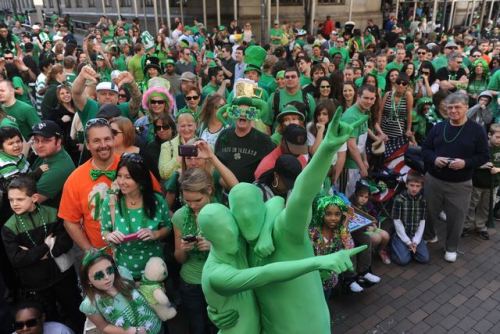
![[From the CMR archived files, 1973]… The Dakotan Drop-Ear was easily subdued and evinced neit [From the CMR archived files, 1973]… The Dakotan Drop-Ear was easily subdued and evinced neit](https://64.media.tumblr.com/bb37ce7b394f5c383d73ff29285beac6/tumblr_omxnx5lytQ1trebyso1_500.jpg)
